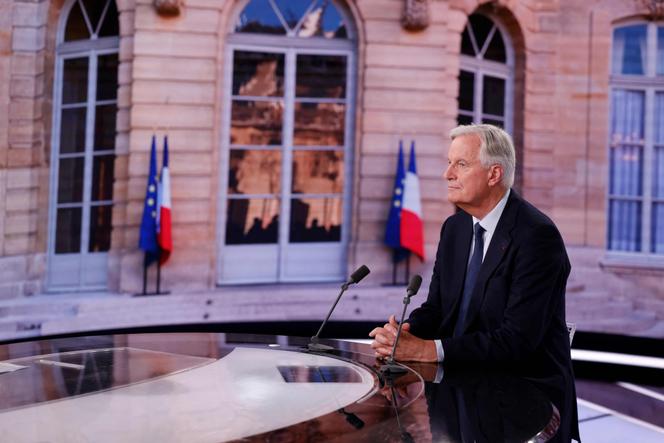


Michel Barnier is a conservative. No doubt about it after a political career of half a century. As a teenager, Barnier pasted up General de Gaulle's campaign posters. France's new prime minister embraces his political camp. But the 2021 presidential candidate for the right-wing Les Républicains (LR) party now says he wants to make room for the left in his future government.
In an interview on primetime television on the evening of Friday, September 6, the former European commissioner, who he says comes from a "social Gaullist" background, insisted that "everything is possible." It won't be "just a right-wing government," he promised.
His team will include members of the presidential camp, with "maybe, maybe" some ministers from the outgoing government. Former LR members such as Gérald Darmanin (interior), Sébastien Lecornu (armed forces) and Aurore Bergé (gender equality) have said they are ready to join him. But Barnier also hopes to attract "people from the left." Who are they? Therein lies the mystery.
Apart from former 2007 presidential candidate Ségolène Royal, whose entourage told Le Monde that "a construction between the right, the center and part of the left, open and listening, would be a good idea," interested candidates are scarce. To hear the Socialist leader Olivier Faure tell it, no Socialist will be part Barnier's future government, which will be subject to a motion of no confidence tabled by the left-wing alliance Nouveau Front Populaire (NFP). "I've never been a sectarian," declared Barnier in the television interview.
At 73, the man who insisted he has no "career plans" is breaking taboos to win over the opposition, saying he is ready to "open a debate" on the pension reform which, in 2023, put millions of French people on the streets. "Our country needs strong trade unions," he continued in the interview, the better to demonstrate his difference with Emmanuel Macron's style, a Jupiter-like president with little concern for intermediary bodies. "Every citizen is necessary," Barnier insisted, in stark contrast to the president's unfortunate 2017 comment about "people who are nothing."
Six years after the wealth tax was scrapped, Barnier also promised he wouldn't shy away from taking action for "greater tax justice," while avoiding going into detail and defending "order and morality" in the face of "bankers who think they can do whatever they like." With one glance to the left, another to the right, Barnier also promised to tackle the issue of immigration and borders which, in his eyes, have become "sieves," while studying the subject of proportional representation, a demand of the far-right Rassemblement National (RN). "I don't have any red lines," he summed up.
You have 61.97% of this article left to read. The rest is for subscribers only.
